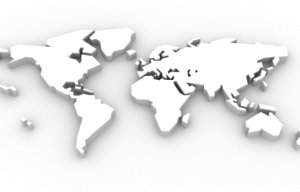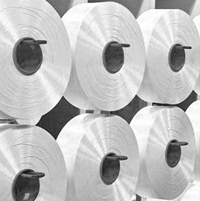
TPL becomes centre of Teijin’s polyester fibre production
Polyester fibre producer Teijin Fibers Limited has announced the development of a new cationic-dyeable polyester polymer, called V4, which it says can be dyed at ambient temperature and pressure and also offers excellent fibre strength and stainability. According to Teijin, V4 paves the way for the development of ultra-fine highly multi-filament yarn as well as non-circular cross-section yarn, both offering high-quality deep dyeing and colour clarity. Teijin Fibers also

22nd April 2010
Innovation in Textiles
|
Osaka
 Polyester fibre producer Teijin Fibers Limited has announced the development of a new cationic-dyeable polyester polymer, called V4, which it says can be dyed at ambient temperature and pressure and also offers excellent fibre strength and stainability.
Polyester fibre producer Teijin Fibers Limited has announced the development of a new cationic-dyeable polyester polymer, called V4, which it says can be dyed at ambient temperature and pressure and also offers excellent fibre strength and stainability.
According to Teijin, V4 paves the way for the development of ultra-fine highly multi-filament yarn as well as non-circular cross-section yarn, both offering high-quality deep dyeing and colour clarity. Teijin Fibers also will manufacture raw yarn made from V4 for use in women’s clothing, innerwear, sportswear and home furnishings. V4 also will be sold as textiles.
The V4 series will be marketed globally as one of Teijin Fibers’ new mainstay products, positioned as an “eco colour” material that helps to reduce the environmental impact of the dyeing process. The first product to be introduced will be Waveron V4, a polyester fibre with a cross section of four flat peaks that will be marketed full scale from July. Annual sales of all products in the V4 line are expected to reach 1,000 tons by the fiscal year ending in March 2013.
The V4 based cationic-dyeable polyester fibre will be the first material to be produced at Teijin (Thailand) Limited, a subsidiary company of the Teijin Group. As part of optimizing global production, Teijin Fibers is relocating polyester fibre production from Japan to group companies in Thailand, the country that will become Teijin’s main production base for polyester filaments and staple fibres.
Cationic-dyeable polyester fibre is a special polyester fibre that can be coloured with cationic dye, unlike ordinary polyester fibres. Excellent colour development and fastness have enabled cationic-dyeable polyester fibres to be used in many applications.
Conventionally, however, they must be dyed at high temperature and pressure, making it difficult to combine them with wool, silk or other natural fibres that tend to lose strength and texture when subjected to extreme conditions. Combination with polyurethane or other elastic fibre also has been problematic.
Cationic-dyeable polyester fibres that can be dyed at ambient temperature and pressure exist, but their fibre strength is generally 20-30% below that of ordinary polyester fibres. This weakness complicates their use as differentiated yarns, such as highly multi-filament or non-circular cross-section yarn, so applications and compatible materials are limited.
Using special polymer technology to achieve molecular-level reformation, Teijin Fibers says it has now developed a cationic-dyeable polyester polymer that enables dyeing at ambient temperature and pressure for high-quality deep dyeing and colour clarity. V4’s fibre strength of 3.8 cN/dtex or higher is equivalent to that of ordinary polyester fibres and in the top rank of cationic-dyeable polyester fibers.
V4 opens the way for a wide variety of raw yarns, including non-circular cross-section yarn and ultra-fine highly multi-filament yarn measuring about 1.0 dpf (0.01 mm in diameter) or less per single yarn. V4 also can be crimped and marketed as textured yarn.
Since V4 can be dyed at ambient temperatures of 100 degrees Celsius or less, as well as at ambient pressure, its dyeing process requires 30% less power and steam energy consumption and produces 25% fewer CO2 emissions compared to conventional dyeing at 130 degrees Celsius and 1.3 atmospheres, according to tests conducted by Teijin Fibers.

Business intelligence for the fibre, textiles and apparel industries: technologies, innovations, markets, investments, trade policy, sourcing, strategy...
Find out more